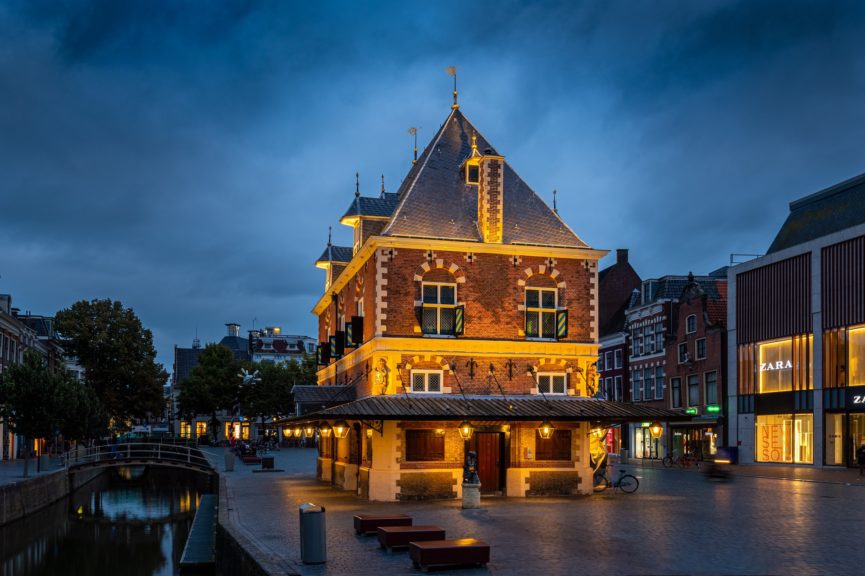This international conference investigates how cultural education and cultural participation relate to challenges of access, social cohesion, heritage and cooperation. How can we best channel our research and policies to promote an open, inclusive, resilient European society?
We invite professionals, researchers and policy makers in cultural education and participation to join us in Leeuwarden, the Netherlands.
Conference themes
Access for everyone in a diverse Europe
The ideal scenario sketches us a Europe in which participation in cultural life is open to each citizen. But are we there yet? Or is the truth that some communities have limited or no access to cultural life? If so, how can these groups be identified and how can they be reached? Which best practices or documented policies are available and can be shared to stimulate equal and sustainable access on cultural education and participation in Europe?
Arts & culture for social challenges
Arts and culture can bridge the gaps between heterogeneous groups and promote social cohesion. Art education can be a mechanism to foster creative, innovative, open-minded citizens and bestow the population in deprived urban areas or sparsely populated rural regions an improved quality of life.
What can the existing research, practice and policy in Europa teach us about this social potential of arts and culture? And how should cultural education and participation be organised to fully activate all this potential?
Arts, culture, heritage and identity
Arts and heritage play an important role in both forming strong identity awareness as well as paralyzing the individual to adapt to new surroundings. Especially in social developments like migration, globalization and individualization. This asks for new stories and ideas for welcoming diversity whilst allowing everyone to cherish the past.
How can cultural and heritage education and participation help to conserve and hold onto traditional cultural identity and at the same time promote diversity, dialogue and mutual understanding?
European cooperation
The last decades we have seen a variety of European projects (such as ‘Europe in Perspective: International Cooperation in Cultural Learning’ or the ‘Cultural Awareness and Expression Handbook’) and networks (such as AMATEO, ACEnet and ENO) promoting cultural education and cultural participation.
What are the lessons learned? And how can we improve this cooperation in the future to ensure that cultural education and participation can be an important force in building an open, inclusive, resilient and sustainable Europe?

This international conference investigates how cultural education and cultural participation relate to challenges of access, social cohesion, heritage and cooperation. How can we best channel our research and policies to promote an open, inclusive, resilient European society?
We invite professionals, researchers and policy makers in cultural education and participation to join us in Leeuwarden, the Netherlands.
Conference themes
Access for everyone in a diverse Europe
The ideal scenario sketches us a Europe in which participation in cultural life is open to each citizen. But are we there yet? Or is the truth that some communities have limited or no access to cultural life? If so, how can these groups be identified and how can they be reached? Which best practices or documented policies are available and can be shared to stimulate equal and sustainable access on cultural education and participation in Europe?
Arts & culture for social challenges
Arts and culture can bridge the gaps between heterogeneous groups and promote social cohesion. Art education can be a mechanism to foster creative, innovative, open-minded citizens and bestow the population in deprived urban areas or sparsely populated rural regions an improved quality of life.
What can the existing research, practice and policy in Europa teach us about this social potential of arts and culture? And how should cultural education and participation be organised to fully activate all this potential?
Arts, culture, heritage and identity
Arts and heritage play an important role in both forming strong identity awareness as well as paralyzing the individual to adapt to new surroundings. Especially in social developments like migration, globalization and individualization. This asks for new stories and ideas for welcoming diversity whilst allowing everyone to cherish the past.
How can cultural and heritage education and participation help to conserve and hold onto traditional cultural identity and at the same time promote diversity, dialogue and mutual understanding?
European cooperation
The last decades we have seen a variety of European projects (such as ‘Europe in Perspective: International Cooperation in Cultural Learning’ or the ‘Cultural Awareness and Expression Handbook’) and networks (such as AMATEO, ACEnet and ENO) promoting cultural education and cultural participation.
What are the lessons learned? And how can we improve this cooperation in the future to ensure that cultural education and participation can be an important force in building an open, inclusive, resilient and sustainable Europe?